Last Updated on April 21, 2025 by Eric Cantu
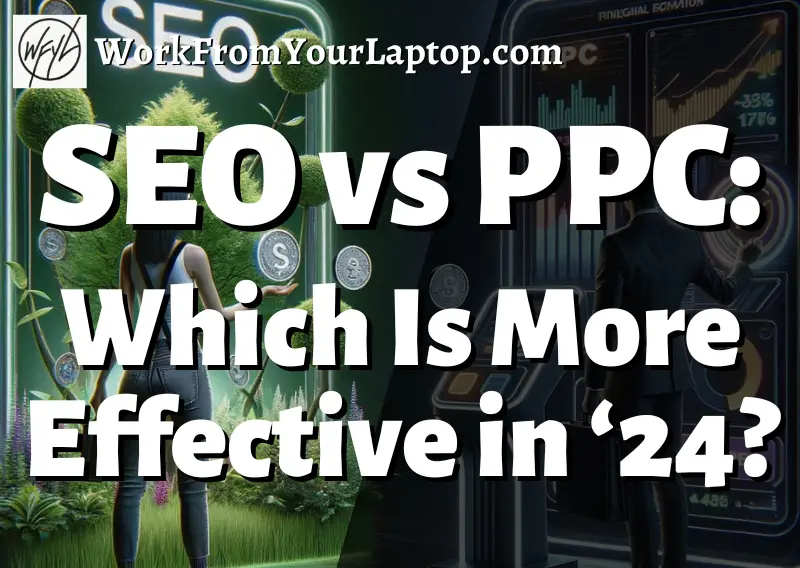
When it comes to SEO (Search Engine Optimization) or PPC (Pay per click), which is more effective in 2024? Can one be statistically proven to be better than the other, or should we as content creators be using a balance of both?
SEO vs PPC: Which is More Effective in 2024?
SEO results take longer to see but are better for the long term and have higher conversion rates. PPC can have immediate results and has a 50% higher ROI, but requires constant funding. Striking a balance between the two is your best bet as a digital marketer.
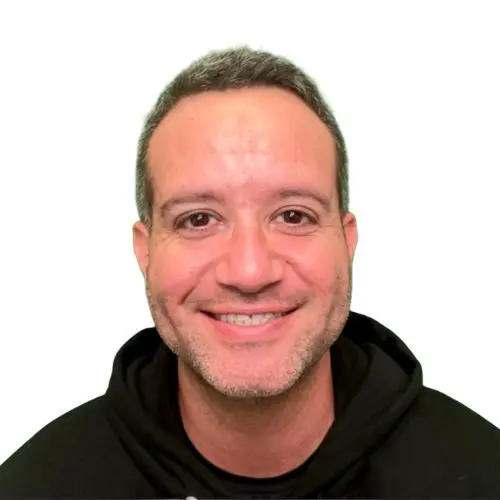
Training That Delivers!
• Turn your own niche website into revenue
• Step by step training, tools, & support
• Your own AI powered Business Hub
• Get me as your support coach!
• Free test drive to see if it’s a good fit!
What’s the Difference Between SEO vs PPC?
When it comes to digital marketing, you have two options for driving traffic to your websites: search engine optimization (SEO) and pay-per-click (PPC) advertising. Both methods have their pros and cons, and the choice between them can be difficult.
What is SEO?: SEO involves optimizing your website and its content to rank higher in organic search results. This means creating high-quality content, placing keywords effectively, optimizing your website’s structure and metadata, and building high-quality backlinks.
What is PPC?: PPC, on the other hand, involves paying for ads that appear at the top of search engine results pages (SERPs) for specific keywords. You are charged for every click to your ad, and you create that ad with hopes that it converts enough times to pay for those clicks and still be profitable.
While SEO is a long-term strategy that takes time to see results, PPC can deliver immediate traffic and results. But it goes deeper than that.
The Evolution of SEO in 2024
Search Engine Optimization has changed in 2024. With the rise of AI, many content creators are questioning if SEO is still worth it. More and more of their audience is getting quick answers from AI and moving on, however this may be slightly misleading.
Stats show that Google still clearly has the stranglehold on all searches. And while Google and its 2024 Helpful Content Update (HCU) have had an major effect on SEO with so much UGC (user generated content) like Reddit and Quora forums finding their way to the top of searches, how do website content creators compete?
SEO is still a crucial aspect of digital marketing. There will always be a need to optimize content to attract organic traffic. It’s just a matter of learning how to adapt to the current needs and behaviors of your audience.
Now more than ever, content creators need to:
- Optimize for mobile
- Focus on long tail keywords
- Optimize for voice search
What are the top SEO Strategies for Current Algorithms in 2024?
While creating high-quality, relevant content that’s optimized for both your audience and search engines should always be a priority as a content creator, in 2024 new strategies have emerged..
Optimize your content for mobile: This is a strategy that’s been growing more and more important as of late. According to this website, mobile devices account for about 63% of online searches in the U.S. in 2024. Because of this you have to make sure your content looks just on all devices!
Are you making sure your images stack on mobile? How about centering images in between paragraphs instead of wrapping text around them which can look wonky on mobile? These considerations are more important than ever when you understand how your audience is absorbing your content.
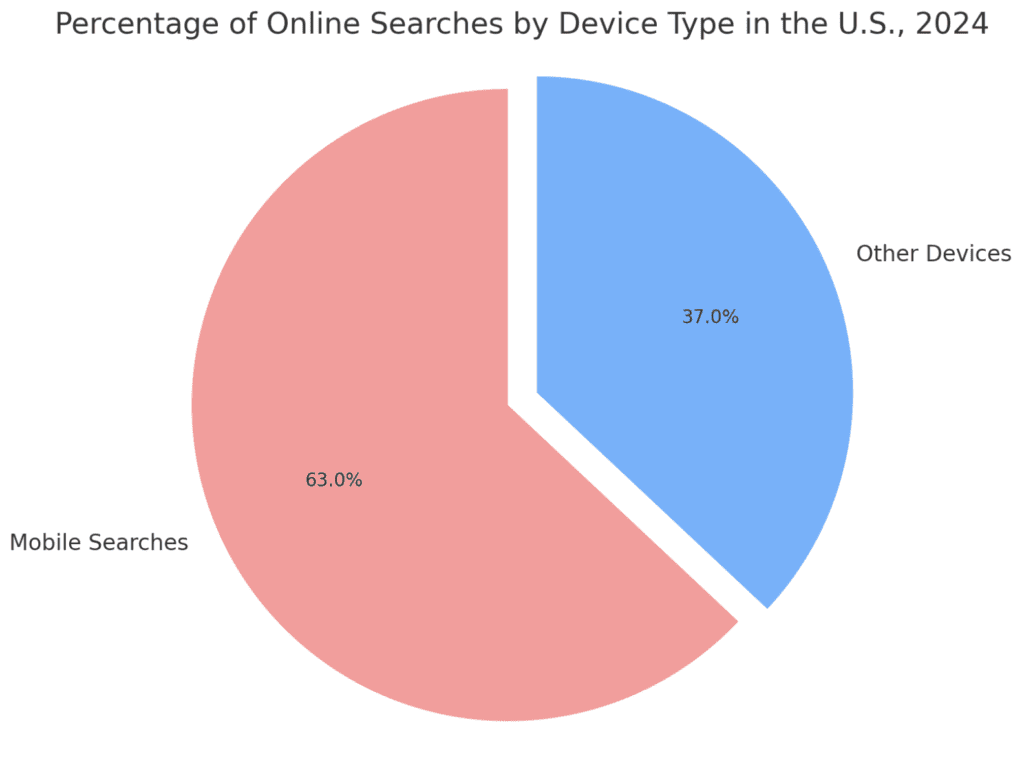
Focus on long tail keywords for much better conversions: Long tail keywords are defined as keywords that are longer and more specific, usually at least three words or more in length. A keyword like “basketball” is a very broad and general keyword, whereas a long tail keyword like “what are the best dribbling exercises for beginners” is much more specific and detailed.
So when you focus on these long tail, specific keywords, what happens is your audience arrives at your content finding exactly what they were looking for. This is big for conversions and ranking.
Optimizing for voice search: With the rise of AI assistants like Siri, Alexa, ChatGPT, and more, voice search has become another route your audience is using to find answers to their searches. They will simply ask their specific question to their AI assistant and bypass Google altogether.
Now, it’s important to understand that Google and YouTube search are still by far the most used route for finding answers, but it’s important to adapt your strategies for the growing voice search as well.
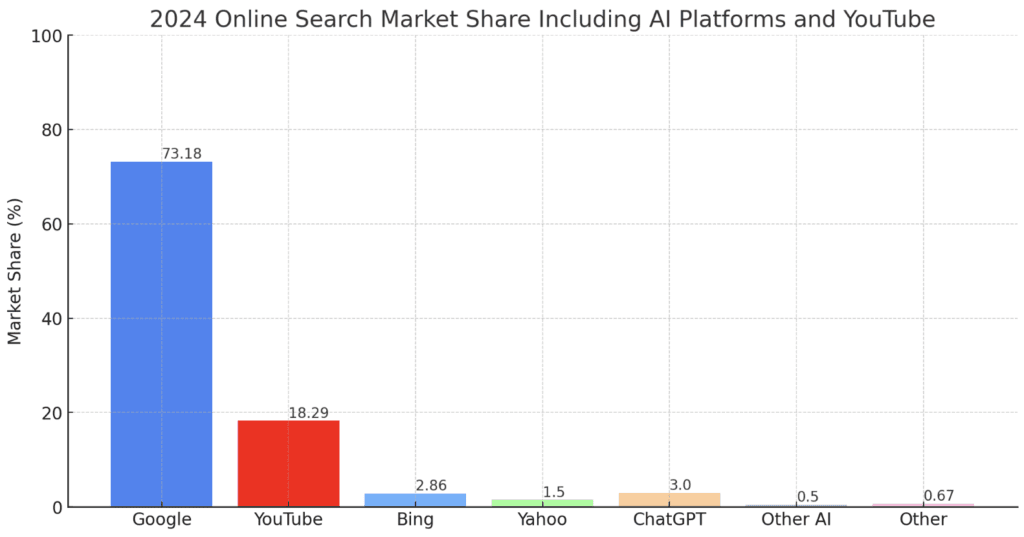
Optimizing for voice search actually goes hand in hand with focusing on long tail keywords, since most voice searches are very specific in their structure.
Understanding PPC
Fundamentals of Pay-Per-Click
PPC advertising allows you to bid on specific keywords or basically “buy” phrases that your target audience might search for when looking for products or services. When a user clicks on your ad, you’re charged. The cost of the click varies depending on the competition for the keyword, the quality of the ad, and other factors.
One of the key advantages of PPC advertising is that it allows you to target specific audiences based on their demographics, location, interests, and other criteria. This means you can reach those potential customers who are more likely to convert into paying customers.
Once a PPC campaign is fine tuned, it can be very profitable. Check out these 34 eye opening profitable PPC stats.
One thing that is very important to understand though is that PPC campaigns take time (and money) to fine tune. If you jump into PPC without an understanding of what converts organically, you can quickly find yourself drowning in an expensive money pit.
PPC Trends and Innovations in 2024
In 2024, as Google fine tunes what it wants to be after their Helpful Content Update, I’ve personally seen much more paid ads at the top of certain keyword searches. Typically, I’d say this isn’t good for SEO, as users are arriving on a Google results page and even if you’re in a top spot, the user can’t see that until they scroll down past all the ads.
However, what this does mean is there is a growing opportunity in PPC. And just like with SEO, voice search is becoming increasingly popular, which means that businesses will need to optimize their PPC ads for voice queries we well.
Another trend we can expect to see in 2024 is the rise of video ads. Video is becoming an increasingly popular medium for advertising, and platforms like YouTube and Facebook are making it easier for businesses to create and run video ads.
How Do SEO and PPC Compare With Each Other?
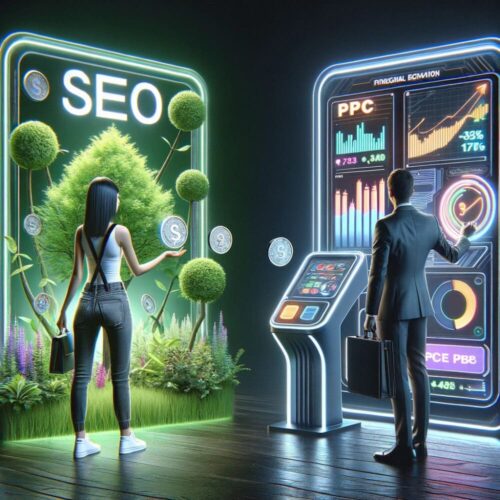
Cost Implications
When comparing SEO and PPC, SEO is generally cheaper than PPC since it’s focused on optimizing your website to rank higher in search engine results pages organically, which is free of charge. With PPC obviously, there’s a requirement to pay for each click on your ad, which can quickly add up.
Traffic Potential
Both SEO and PPC have the potential to drive traffic to your website, but they differ in the way they generate traffic. SEO can result in more organic traffic, while PPC can generate more targeted traffic.
While SEO can take time to see results, it can result in more sustained traffic over time. PPC can generate more immediate traffic, but it can be costly in the long run.
Conversion Rates
According to recent studies, organic search has a 14.6% conversion rate, while PPC has a 10% conversion rate. However, the conversion rate can vary depending on the quality of your website, the relevance of your keywords, and other factors.
It’s important to note that PPC typically has a better return on investment (ROI) than SEO. On average, businesses can expect to earn $2 for every $1 spent on PPC, compared to $1.60 for every $1 spent on SEO. However, the ROI can vary depending on the industry and competition level.
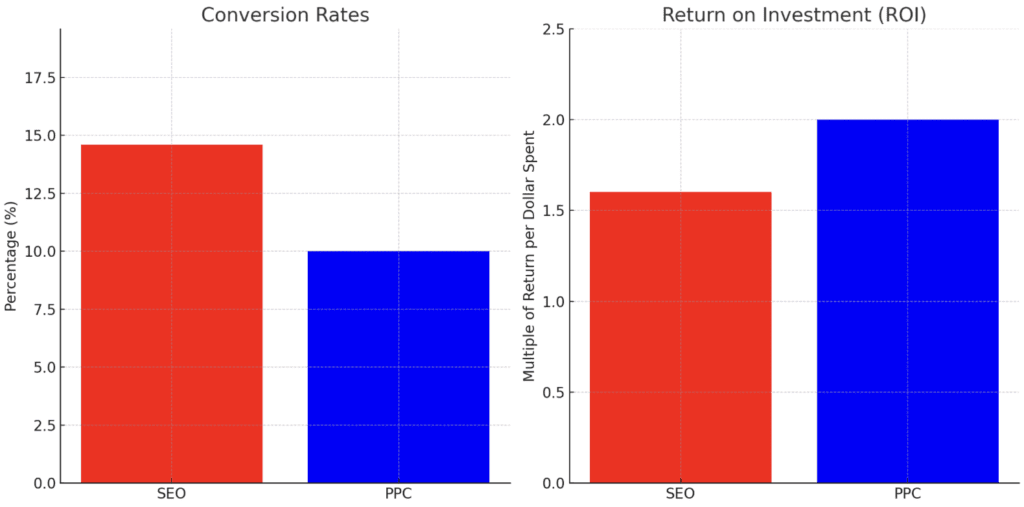
Time Investment
SEO and PPC also differ in the amount of time and effort required to see results. SEO can take several months to see results, while PPC can generate immediate traffic. However, SEO can result in more sustained traffic over time, while PPC can be costly in the long run.
It’s also important to remember that SEO requires ongoing effort to maintain and improve your rankings, while PPC requires ongoing investment to maintain your ad campaigns.
Can SEO and PPC Work Together?
In 2024, an integrated approach to SEO and PPC is becoming more and more popular. When you combine the two strategies, you can achieve greater visibility, traffic, and conversions on your website content.
Benefits of a Combined Approach Using Both SEO & PPC
The benefits of running SEO and PPC together include:
- Keyword and conversion data from PPC can be fed into organic search (SEO).
- Geographic areas with weaker SEO coverage can be covered by PPC.
- A combined approach can help businesses dominate search engine results pages (SERPs) and increase brand visibility.
- Combined data from both sources gives a better understanding of your target audience
- High converting keywords for PPC can then be optimized for an SEO strategy
Want training that delivers? Check out my detailed review and full walkthrough of the affiliate marketing training platform I owe all my success to! The training is straightforward, affordable, and you can test drive it first to see if it’s a good fit. Click here to check out my full review!
Final Thoughts
Both SEO and PPC have their pros and cons, from time investment to money investment. Instead of thinking SEO vs. PPC, start thinking SEO and PPC. Combining both strategies provides a more effective approach to your digital marketing efforts.
If you are looking for a long-term investment that can provide cost-effective, credible, and sustainable traffic growth, then SEO is the way to go. However, it requires patience and a willingness to invest in quality content, technical optimization, and link building.
On the other hand, if you need immediate results and have a flexible budget, then PPC can give you a leg up. It allows you to target keywords precisely, test different ad copies, and track your ROI.
What do you think? Have you had a tough time getting your PPC campaign to become profitable? Is SEO seeming like a waste of time after Google’s 2024 HCU Update? Let me know in the comments section below! I’d love to hear your perspective and I always reply!
Frequently Asked Questions
What is the cost difference between implementing SEO and PPC?
Generally, SEO is a more cost-effective strategy in the long term, as it can provide sustainable traffic growth without the ongoing costs of PPC campaigns. However, there may be situations where PPC is more cost-effective, such as when targeting highly competitive keywords or during specific promotional campaigns.
How do changes in search engine algorithms affect SEO and PPC effectiveness?
Changes in search engine algorithms can have a significant impact on the effectiveness of both SEO and PPC strategies. Both SEO and PPC strategies need to be adaptable to continue to be effective.
What are the measurable differences in ROI between SEO and PPC campaigns?
PPC campaigns have a higher ROI in the short term, as they can provide immediate results. However, SEO campaigns have a higher ROI in the long term, as they can provide sustainable traffic growth without the ongoing costs of PPC campaigns.
Still Hungry for Growth?
Dive Into These Handpicked Articles! ⬇️
- Attraction Marketing Formula Review (2025): Legit or Just Another MLM Trap?
- How to Make Money on Patreon (2025 Guide for Creators)
- Affiliate Marketing Strategies For Social Media in 2025
- Affiliate Marketing For Bloggers: How To Monetize Your Blog
- Top 7 Affiliate Marketing Niches to Explore in 2025!
- 5 Proven Ways to Drive Traffic to Your Affiliate Links in 2025
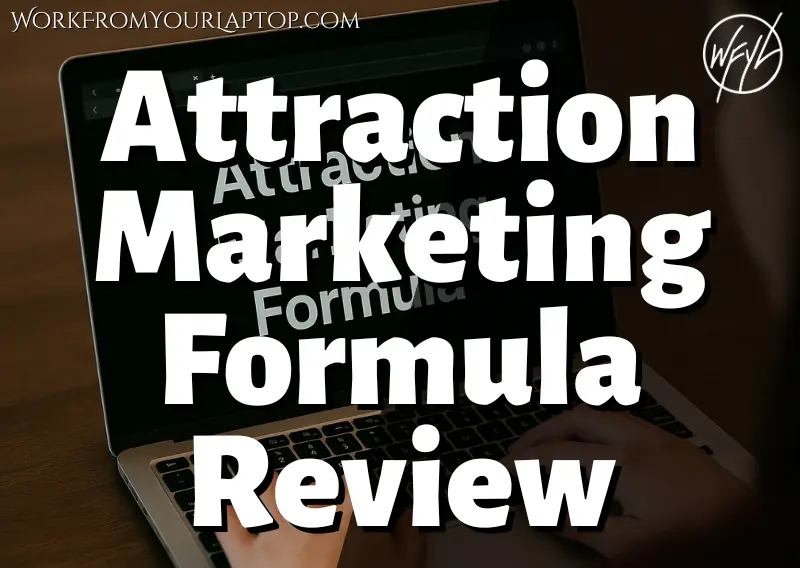

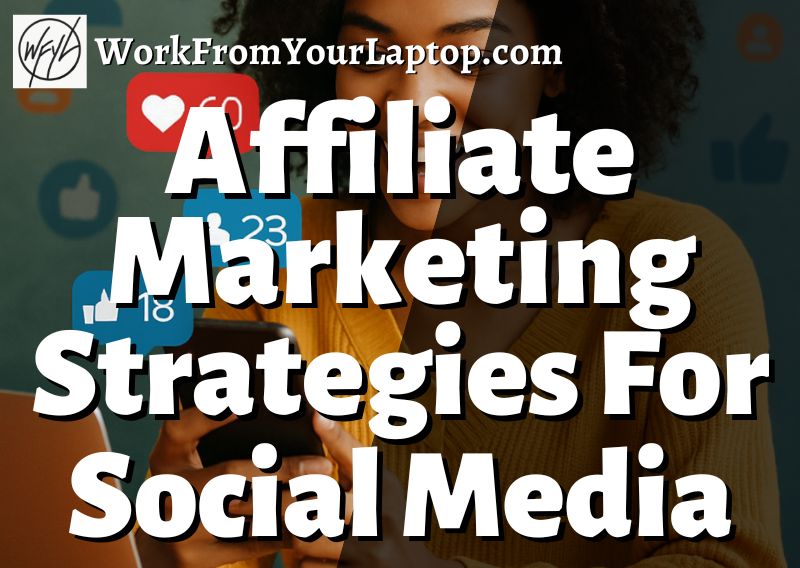

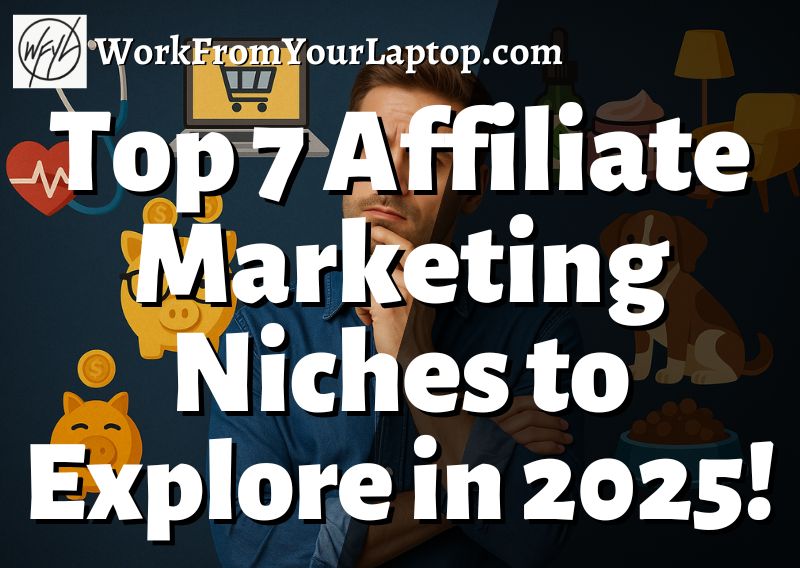
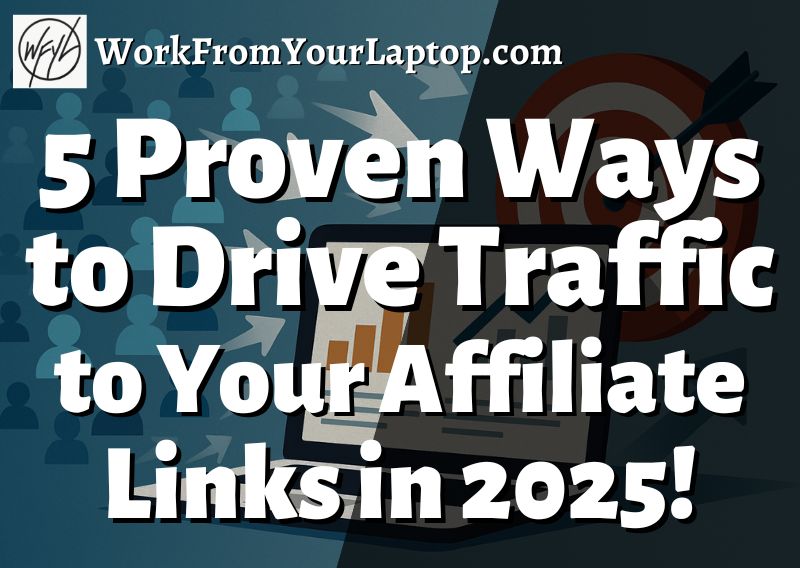
Keep up the great work! Thank you so much for sharing a great post.
Hi Eric,
Thank you for this insightful comparison into SEO and PPC as it pertains to 2024. I agree that a balanced approach makes the most sense since putting all of one’s eggs into the same bucket typically has a rough ending.
I do have a question about PPC. Do you recommend just sticking with Googke due to islts dominance in search queries, or are there other avenues to test the waters of PPC?
Cheers!
Ryan
There’s Bing PPC as well. Most go with Google because they dominate but plenty have good results with Bing as well. Thanks for the comment!
Hello!
Thanks for the breakdown! Your post is very helpful in giving guidance on SEO vs PPC, it makes the decision making so much easier.
It seems that voice search will complicate PPC performance in the future, I’m curious how well it will be incorporated in our everydays life. I can’t visualize myself using voice searches, maybe Im oldschool!
Would you sugest using PPC for new sites, blogs or should ‘begginers’ stick with SEO?
Recpectfully,
Cortes
I don’t think voice search complicates anything. If you’ve ever asked Siri for something, then you’ve used voice search. To your question, I think new sites should focus on organic SEO. It’s a huge mistake to dive into PPC too early before you know what’s organically converting. Thanks for the comment!